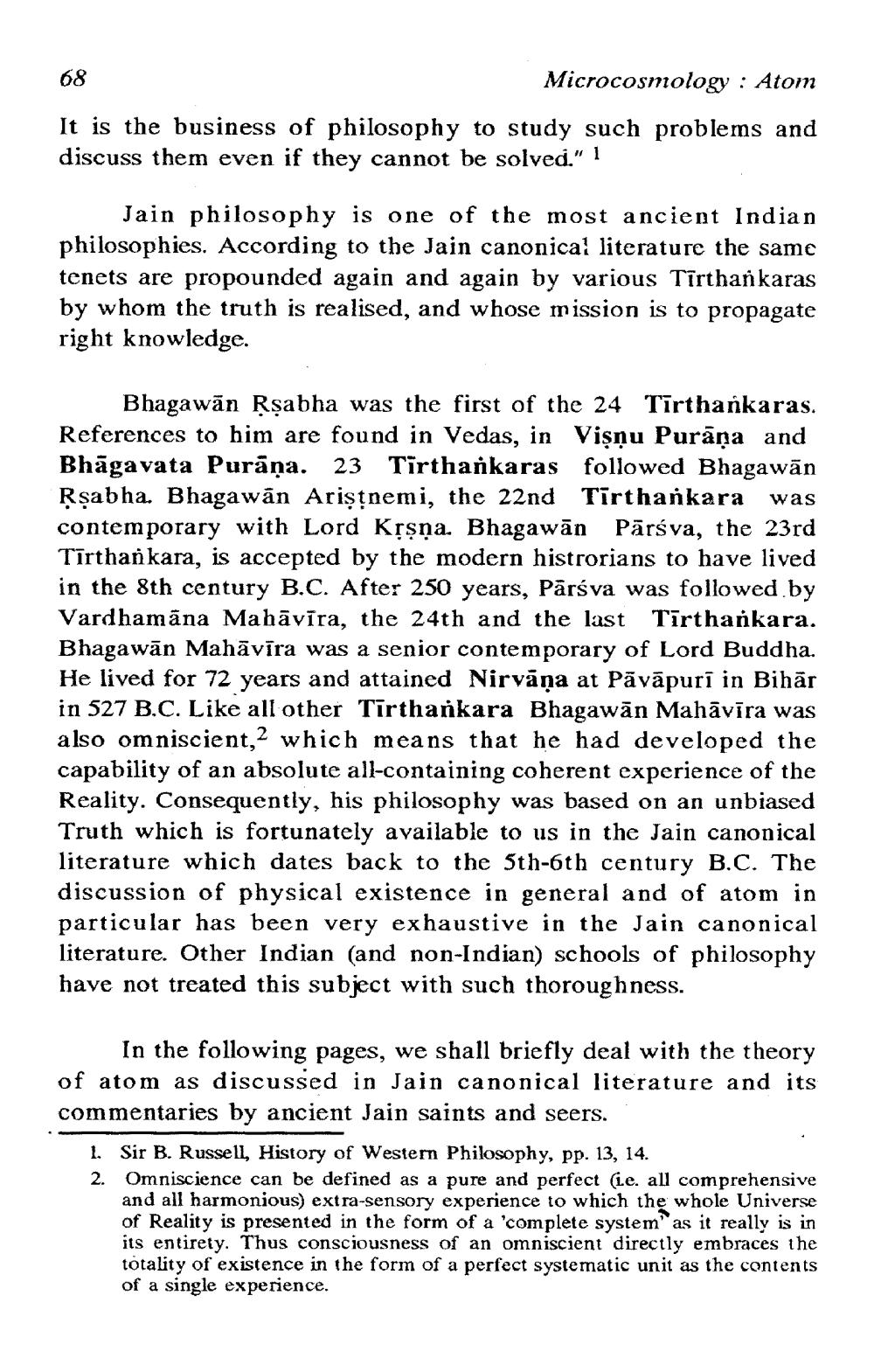________________
68
Microcosmology : Atom It is the business of philosophy to study such problems and discuss them even if they cannot be solved." 1
Jain philosophy is one of the most ancient Indian philosophies. According to the Jain canonica: literature the same tenets are propounded again and again by various Tīrthankaras by whom the truth is realised, and whose mission is to propagate right knowledge.
Bhagawan Rşabha was the first of the 24 Tīrthankaras. References to him are found in Vedas, in Vişnu Purāna and Bhāgavata Purāņa. 23 Tirthařkaras followed Bhagawān Ķsabha. Bhagawan Ariştnemi, the 22nd Tirthankara was contemporary with Lord Krsna. Bhagawan Pārsva, the 23rd Tīrthankara, is accepted by the modern histrorians to have lived in the 8th century B.C. After 250 years, Pārsva was followed by Vardhamāna Mahāvīra, the 24th and the last Tīrthařkara. Bhagawan Mahāvīra was a senior contemporary of Lord Buddha. He lived for 72 years and attained Nirvāņa at Pāvāpurī in Bihār in 527 B.C. Like all other Tirthankara Bhagawān Mahāvīra was also omniscient,2 which means that he had developed the capability of an absolute all-containing coherent experience of the Reality. Consequently, his philosophy was based on an unbiased Truth which is fortunately available to us in the Jain canonical literature which dates back to the 5th-6th century B.C. The discussion of physical existence in general and of atom in particular has been very exhaustive in the Jain canonical literature. Other Indian (and non-Indian) schools of philosophy have not treated this subject with such thoroughness.
In the following pages, we shall briefly deal with the theory of atom as discussed in Jain canonical literature and its commentaries by ancient Jain saints and seers.
1. Sir B. Russell, History of Western Philosophy, pp. 13, 14. 2. Omniscience can be defined as a pure and perfect (ie. all comprehensive
and all harmonious) extra-sensory experience to which the whole Universe of Reality is presented in the form of a 'complete system as it really is in its entirety. Thus consciousness of an omniscient directly embraces the totality of existence in the form of a perfect systematic unit as the contents of a single experience.




